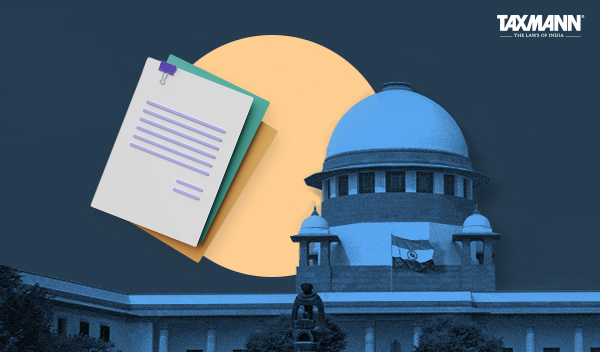Assessee Can Challenge Extended Limitation Period Invoked in SCN During Tax Proceedings Following Discrepancy Noted in CAG Audit | HC
- Blog|News|GST & Customs|
- 2 Min Read
- By Taxmann
- |
- Last Updated on 26 March, 2025

Case Details: Vedanta Ltd. vs. Union of India - [2025] 172 taxmann.com 445 (Orissa)
Judiciary and Counsel Details
- Arindam Sinha, ACTG. CJ.
-
V. Sridharan, Sr. Adv., Prashanta Kumar Nayak, Adv. for the Petitioner.
-
Satyanarayan Pattanayak, T.K. Satapathy, Advs. for the Respondent.
Facts of the Case
The petitioner-assessee identified a discrepancy between its accounts and GST annual return, which was also noted in a CAG audit. The jurisdictional officer sought an explanation, which the assessee furnished to the officer’s satisfaction. Despite this, the audit case remained pending, and the tax authority issued a show-cause notice invoking the extended limitation period under Section 74 of the Central Goods and Services Tax Act, 2017 / Orissa Goods and Services Tax Act, 2017. The impugned show-cause notice recorded a dispute wherein the petitioner considered it a mere discrepancy, while the revenue alleged wrongful availment of Input Tax Credit (ITC). The petitioner challenged the invocation of the extended limitation period in the show-cause notice, seeking relief through a writ petition.
High Court Held
The Hon’ble High Court held that the petitioner-assessee retains the right to contest the invocation of the extended limitation period while responding to the show-cause notice. The court directed the tax authority to pass an order on the matter and clarified that upon receipt of the order, the assessee would have the liberty to seek legal advice on the next course of action. With these observations, the writ petition was disposed of in favour of the assessee, reinforcing that the limitation issue could be raised during the tax proceedings.
Disclaimer: The content/information published on the website is only for general information of the user and shall not be construed as legal advice. While the Taxmann has exercised reasonable efforts to ensure the veracity of information/content published, Taxmann shall be under no liability in any manner whatsoever for incorrect information, if any.

Taxmann Publications has a dedicated in-house Research & Editorial Team. This team consists of a team of Chartered Accountants, Company Secretaries, and Lawyers. This team works under the guidance and supervision of editor-in-chief Mr Rakesh Bhargava.
The Research and Editorial Team is responsible for developing reliable and accurate content for the readers. The team follows the six-sigma approach to achieve the benchmark of zero error in its publications and research platforms. The team ensures that the following publication guidelines are thoroughly followed while developing the content:
- The statutory material is obtained only from the authorized and reliable sources
- All the latest developments in the judicial and legislative fields are covered
- Prepare the analytical write-ups on current, controversial, and important issues to help the readers to understand the concept and its implications
- Every content published by Taxmann is complete, accurate and lucid
- All evidence-based statements are supported with proper reference to Section, Circular No., Notification No. or citations
- The golden rules of grammar, style and consistency are thoroughly followed
- Font and size that’s easy to read and remain consistent across all imprint and digital publications are applied



 CA | CS | CMA
CA | CS | CMA
